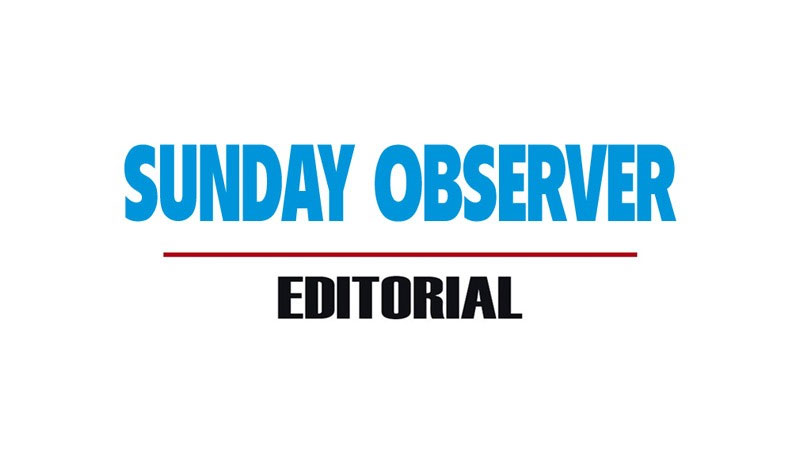With the closure of nominations for the General Election (GE) on Friday, all parties (and more than 200 Independent Groups) will be gearing up for a short but gruelling campaign, ahead of the November 14 election. This comes hot on the heels of the Presidential Election (PE), which was won by National People’s Power (NPP) candidate President Anura Kumara Dissanayake.
Even though there is a perception that Sri Lanka’s Executive Presidency is all-powerful, the Legislature still has many aspects of governance such as Finance under its control. Besides, the President has to get the approval of the Constitutional Council (CC) to appoint suitable persons to a number of high posts. Thus, it is important that the Executive and the Legislature are on the same page as far as crucial decisions are concerned.
Corruption was the overriding theme of this year’s PE and with good reason too. The voters were fed up with the traditional parties and their offshoots that had governed the country for the past 76 years, mainly because corruption was part and parcel of their governing style. It is no secret that some Members of Parliament (MPs) who did not even have a push bicycle at the beginning of their political careers were later seen travelling in super luxury vehicles that simply could not be purchased with an MP’s salary. In fact, many politicians are known to have stashed their ill-gotten wealth in overseas tax havens through shell companies that are rather difficult to trace.
Thus, the mandate received by President Dissanayake was an overwhelming indictment on the regular political parties that tolerated and even encouraged corruption within their ranks. That era is well and truly over. Most politicians from the Old Guard seem to have seen this writing on the wall and opted to stay out of the GE.
Some have announced their total retirement from politics, which is music to the ears of weary voters who have watched such politicians amass wealth literally at the voters’ expense. In any case, they would have faced an ignominious defeat if they contested the GE.
Hopefully, their inglorious exit from politics should have given all political parties an opportunity to infuse young, untainted blood into their ranks in terms of nominations for the GE. It is time for political parties to give preference to talented young professionals, especially females, in their lists. Females find it extremely difficult to break into politics without having a family connection due to the patriarchal nature of local politics, apart from the massive amount of funds needed for a district-wide campaign.
Prime Minister Dr. Harini Amarasuriya is a great example for a female who had entered politics without a “political family” background and made it to the top. More educated and professional women should get that opportunity. If political parties were constrained by existing obligations at the GE, they should aim for much wider women’s representation at the forthcoming Provincial Council and Local Government elections. Voters too should be wise enough to separate the wheat from the chaff and send only deserving candidates to Parliament.
This brings us to the elephant in the room at election time – Proportional Representation (PR). Many say that PR is the cause for all evil in local politics and they may be right, at least partially. PR leads to heavy intra-party rivalry and only wealthy candidates can afford to paste posters, distribute handbills and hold pocket meetings throughout an entire district. This keeps most professionals away from politics, leaving candidates who have more brawn than brain in the fray. It is, therefore, advisable to opt for a mixture of PR and First-Past-the-Post (FPP) at least from the next elections cycle. This has already been endorsed in Parliament and it is only a matter of implementation. But as an initial measure, the Election Commission (EC) must strictly implement the laws with regard to campaign financing, which will ensure a level playing field.
The National List (NL) is another concern. This was initially mooted by the framers of the present Constitution as a way of bringing in professionals who would otherwise not enter politics, into Parliament. Unfortunately, all parties have used the NL to bring in their defeated candidates through the backdoor, negating the very purpose of having the NL. Political parties must give up this shady practice and ensure that only the crème de la crème of professionals grace the NL.
The EC must also address the question of Independent candidates without delay. There was a good number of Independent candidates at the PE and it has become worse at the GE. It is not exactly clear why so many Independents are contesting the GE but it ramps up the EC’s expenses such as printing costs significantly. One solution would be increasing the deposit by a very significant margin, as already suggested by the EC. They must also not be allowed to engage in propaganda for or on behalf of candidates from established political parties as it has been observed that many Independents use airtime and pocket meetings to do so.
In the meantime, this GE will be one of the most keenly watched elections in living memory. The President is seeking a bigger mandate to carry his progressive agenda forward. Having experienced the dangers of cohabitation a couple of times, the electorate may be inclined to side with the present administration. This will potentially place the Government on a more stable footing, in sync with the voters’ aspirations for a brighter future.




